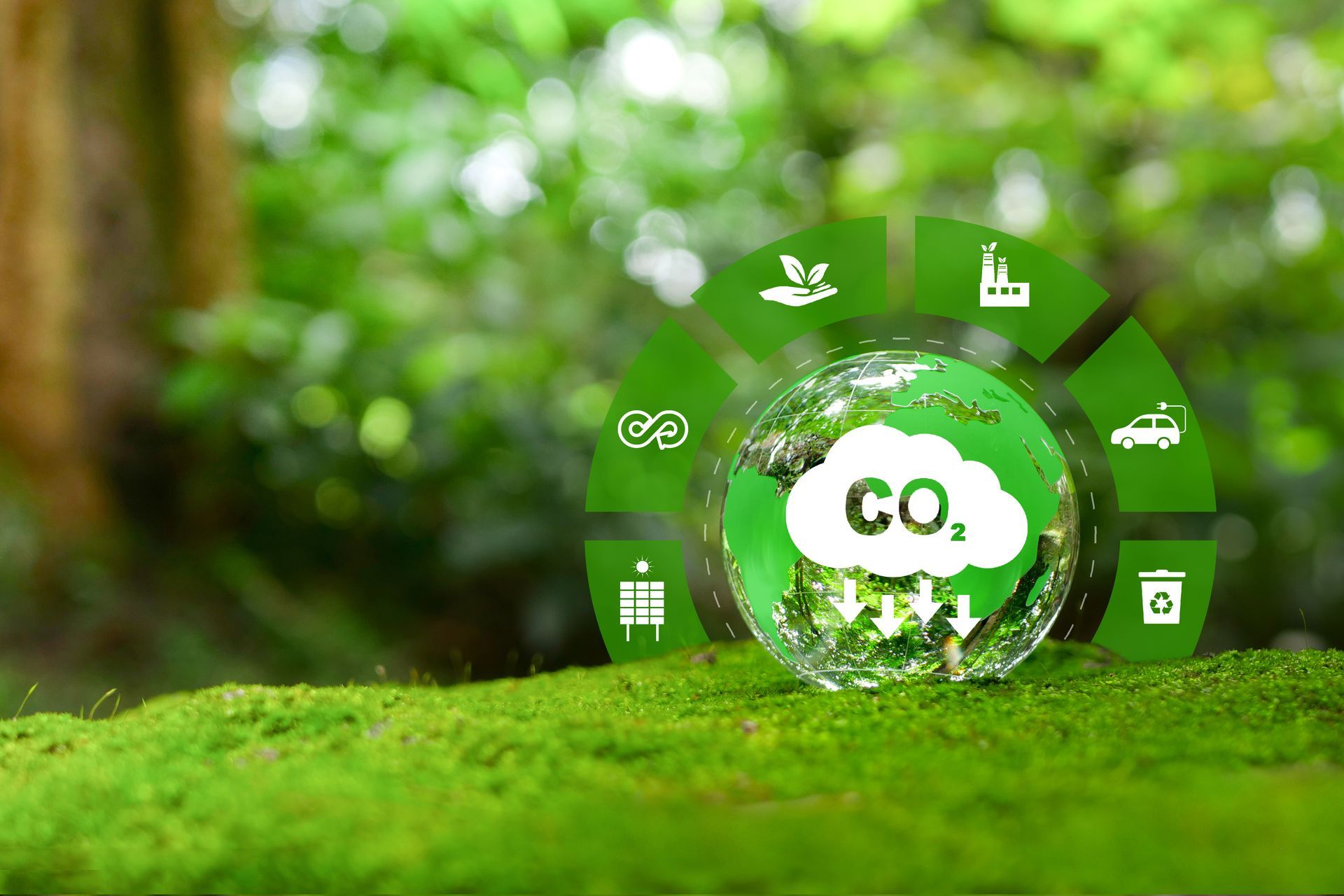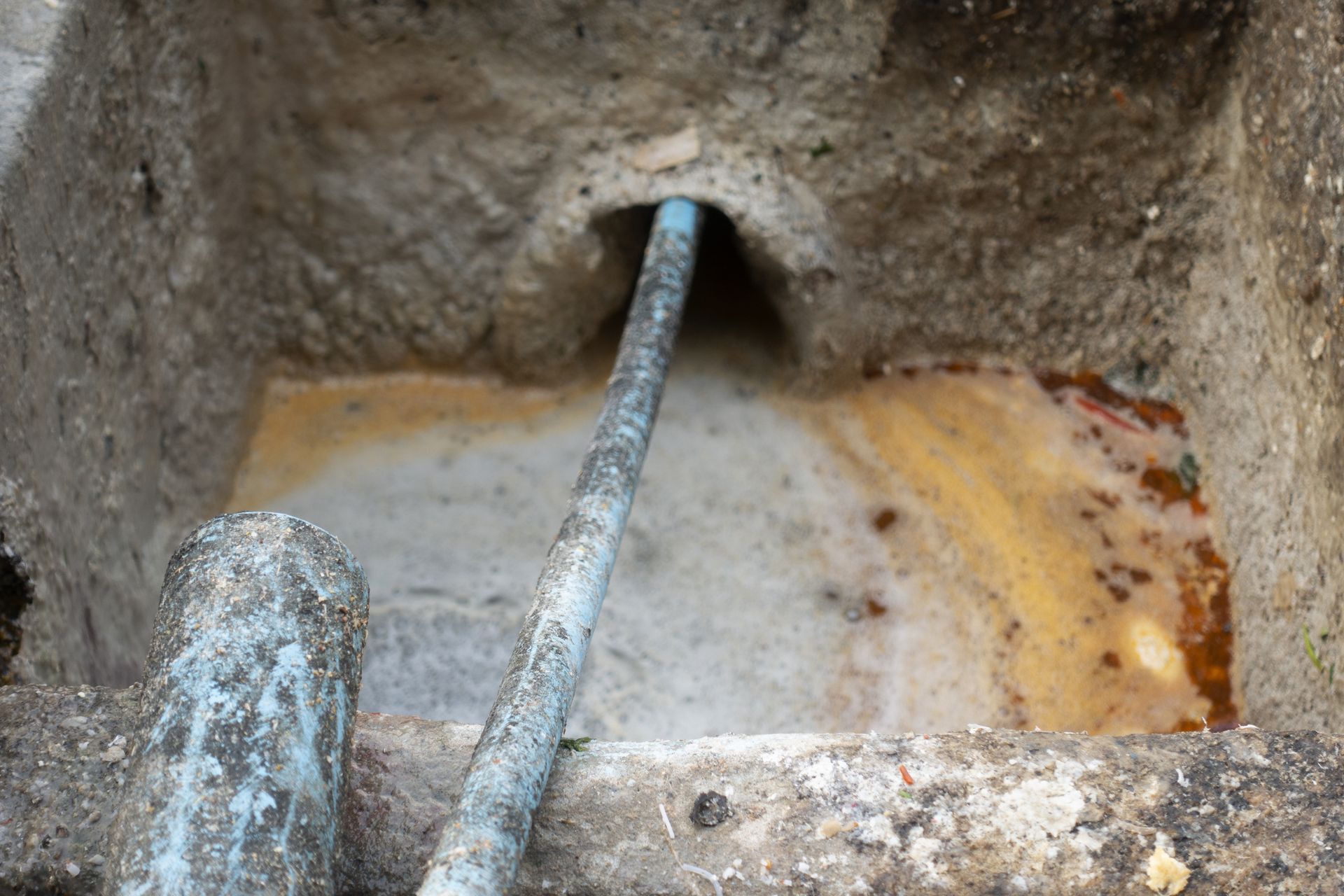Call Today for a FREE Quote
(404) 419-6887
The Role of Wastewater Treatment Plants in Mitigating Greenhouse Gas Emissions

Wastewater treatment plants play an important role in protecting public health and the environment by treating wastewater before it is discharged into water bodies.
However, the environmental impact of wastewater treatment methods extends beyond just water quality concerns, with implications for greenhouse gas emissions and climate change mitigation.
Types of Wastewater and Sources
Wastewater can originate from various sources, including municipal sewer systems, industrial processes, agricultural activities and stormwater runoff. The composition of wastewater varies depending on its source. Municipal wastewater typically contains organic matter, nutrients and pathogens. Industrial wastewater may contain a wide range of pollutants, including heavy metals, chemicals and pharmaceuticals. The diverse nature of wastewater presents unique challenges for treatment and management, requiring specific, unique approaches to address specific contaminants and environmental concerns.
Environmental Impact of Wastewater Treatment Methods
Traditional wastewater treatment methods, such as activated sludge, biological nutrient removal and chemical precipitation, have been effective in removing contaminants from wastewater and protecting water quality. With that said, these methods can also have environmental consequences on greenhouse gas emissions.
Anaerobic digestion, for example, involves the controlled breakdown of organic materials by microbial activity in a closed, oxygen-free environment. As microorganisms metabolize organic matter, they release methane and other gases. Similarly, anaerobic lagoons utilize natural processes in open-air basins to achieve wastewater treatment, resulting in the release of methane during the decomposition process. Methane is harmful as a greenhouse gas because it is highly effective at trapping heat in the Earth's atmosphere, disrupting ecosystems, altering weather patterns and posing risks to human health and safety in indoor or confined spaces.
In addition to anaerobic processes, energy-intensive treatment methods contribute to carbon emissions in wastewater treatment plants. Aeration, a common process used to promote aerobic decomposition and microbial activity, involves the continuous injection of air or oxygen into wastewater. This process requires substantial energy inputs, which may be sourced from fossil fuels to power pumps and aeration equipment. Similarly, pumping operations within wastewater treatment plants that are necessary for conveying wastewater through treatment stages or discharging treated effluent may rely on fossil fuel-powered machinery and lead to carbon emissions from combustion.
Consequences of Failing to Treat Wastewater
While wastewater treatment methods can potentially have damaging impacts on the environment depending on how they’re powered and the treatment methods used, failing to treat wastewater adequately can also have serious environmental and public health consequences.
Untreated or poorly treated wastewater can contaminate water bodies, leading to eutrophication, algal blooms and oxygen depletion. This can degrade aquatic ecosystems and harm aquatic life. Untreated wastewater may also contain pathogens and pollutants that pose risks to human health through waterborne diseases and exposure to toxic chemicals.
Besides these environmental and health impacts, untreated wastewater can also exacerbate greenhouse gas emissions by releasing methane and other volatile organic compounds into the atmosphere, contributing to climate change.
Our Team Is Committed to Providing Green Grease Trap Cleaning and Waste Fryer Oil Recycling Services
At Southern Green Inc., we are committed to environmental sustainability and take pride in being Atlanta's leading provider of eco-friendly grease trap cleaning and servicing solutions. One of the ways we contribute to minimizing greenhouse gas emissions is by operating our fleet of vehicles using clean-burning biodiesel fuel, which we derive from the waste fryer oil we collect and recycle.
If you're seeking a fryer oil recycling and grease trap cleaning company dedicated to keeping Atlanta green, reach out to us today at (404) 419-6887 for a free quote.
Recent Blog Posts
Contact us Today for a FREE Quote
We are committed to making grease trap cleaning and fryer oil recycling as clean and easy as possible. If you’d like to learn more about our services or get a quote, give us a call at (404) 419-6887.
Southern Green Industries is an Atlanta owned and operated grease trap cleaning and fryer oil recycling company operating in Atlanta and throughout the entire state of Georgia.
All Rights Reserved | Southern Green Industries | Built by REV77


